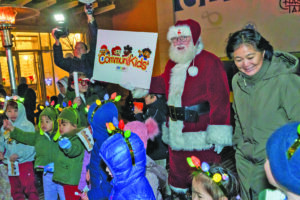Parameters of the coming Fiscal Year 2018 budget process in the City of Falls Church are taking shape this month with the introduction of annual real estate assessments due late next week, a second-quarter financial report of the City’s operation unveiled this week, and the F.C. School Board poised to finalize its request next Tuesday for its annual financial transfer to cover the next school year.
While there are predictions that real estate values will rise considerably, as Councilman Phil Duncan that cited a sale price of a property was 14 percent above its current assessed value, they remain based on anecdotal information. While the official results from City assessor Ryan Davis are, by law, meant to reflect sale values of real estate, some have complained in recent years they are unduly conservative.
The assessments coming next week will be a major determinant of how much taxes the City will be able to raise to cover the costs of government and the schools.
Over and above that, the City Council retains the authority to raise or lower the real estate tax rate, the amount the City demands in taxes based on $100 of assessed real estate valuation. The current rate is $1.315, which held steady last April when the Council voted 4-3 to cut $912,600 from the School Board request.
A lot of citizen anger at that cut wound up centering, whether deservedly or not, on then-Superintendent Dr. Toni Jones, who resigned in favor of a more lucrative job last summer, and this year, enrollment at the City’s five schools has grown much faster than projected — at a 6.4 percent rate over the anticipated 3.4 percent — leading to another potential clash over funding in this budget go around.
In its deliberation over its budget Tuesday night, the School Board members were reminded by vice chair Phil Reitinger that with the $912,600 cut, in the current year there has been a significant drop in per-student allocation.
Last year, Fiscal Year 2016, he noted, with student enrollment at 2,509, the allocation from the City Council on a per-student basis was $15,306. This year, with enrollment at 2,670, the allocation has dropped to $14,781 per student, or a net loss of $1.6 million.
Projected growth in enrollment is at 3.5 percent for next fall, but that is an educated guess, at best.
While everyone in City government has given lip service to the extraordinary quality of the Falls Church public school system, it is the special role of the school board, as echoed by board member Justin Castillo Tuesday, “that we have to fund what our mission requires of us.”
There has already been some good news for the school board, including an unexpected $300,000 savings in health insurance costs due to lower than projected increases in premium costs and a prospective $278,300 in added revenue from the sell-back of computers as a condition for a four-year lease renewal.
But of the $1,668,450 in added revenue that a 2.7 percent increase in the City transfer would provide, almost $600,000 will go to fixed costs, including $250,000 for mandated special education costs, leaving $1,050,400 for so-called discretionary spending to provide for salary increases and of course enrollment growth adding pressure to the needs for additional staffing.
All new teacher and staff hires fall into costs beyond the number allocated by the City Council and would, to be accommodated, require a real estate tax rate increase of approximately 3.5 cents.
On the City revenue side, the report of the first two quarters of the current fiscal year presented by interim financial officer Melissa Ryman noted that anticipated income commercial permit fees is $600,000 below projections so far due to delays in some projects, including the 4.3-acre Mason Row mixed-use project at W. Broad and N. West Street and the withdrawal of a prospective five-story Tradition Homes mixed-use development at the intersection of W. Broad and S. Spring Streets.
(The developers of the Tradition Homes site withdrew, according to News-Press sources, due to City Hall delays since their mid-2015 submission, and have subsequently moved the project to Herndon, where it is now under construction.)
A hefty sales tax increase at 9.25 percent is the best news from the last six months in the City, almost double the regional growth trend, although the drop out of Fresh Market anticipated for the newly-completed Lincoln at Tinner Hill project led to an under-performance by the City’s own projections.
Property tax increases, due mostly to car sales, is also up 11 percent over the last six months.
Overall, City Manager Wyatt Shields suggested the revenue gains in the current fiscal year are generally in line with overall projections.












